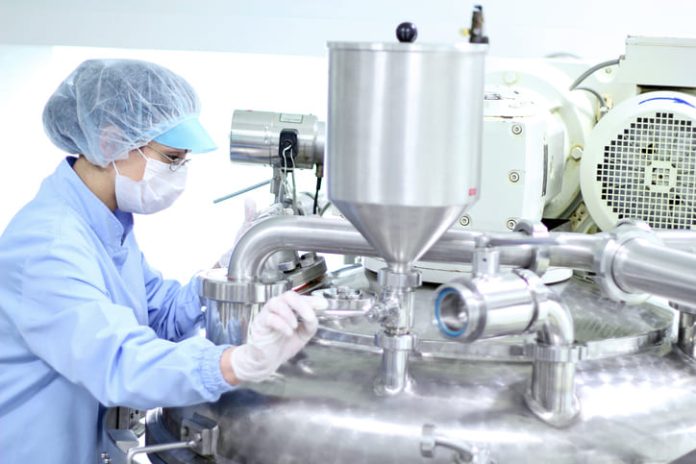In the rapidly evolving field of biopharmaceuticals, viral vectors have emerged as a powerful tool for gene therapy, vaccine development, and other advanced therapeutic applications. These vectors, which are engineered viruses, are used to deliver genetic material into cells, enabling the treatment of a wide range of diseases, including genetic disorders, cancer, and infectious diseases. This article explores the benefits of viral vector services, highlighting their importance in modern medicine and the key considerations for leveraging these technologies effectively.
Understanding Viral Vector Services
Viral vector services involve the development, production, and characterization of viral vectors used in various therapeutic applications. These services encompass a range of activities, including vector design, manufacturing, quality control, and regulatory support. The goal is to provide high-quality viral vectors that are safe, effective, and suitable for clinical and commercial use.
Key Types Of Viral Vectors
There are several types of viral vectors commonly used in biopharmaceutical applications, including:
- Adeno-associated Virus (AAV) Vectors: Used extensively in gene therapy due to their ability to deliver genetic material into non-dividing cells without causing significant immune responses.
- Lentiviral Vectors: Effective in delivering genes into dividing and non-dividing cells, making them suitable for both gene therapy and cell therapy applications.
- Adenoviral Vectors: Utilized in vaccine development and gene therapy, known for their ability to induce strong immune responses.
- Retroviral Vectors: Used primarily in gene therapy for their ability to integrate genetic material into the host genome.
For more detailed information on viral vectors and their applications, you can visit Science Daily.
Benefits Of Exploring Viral Vector Services
Enabling Advanced Therapeutic Applications
One of the primary benefits of viral vector services is their ability to enable advanced therapeutic applications, such as gene therapy and vaccine development. Viral vectors are essential for delivering therapeutic genes into cells, allowing for the correction of genetic defects, the expression of therapeutic proteins, and the elicitation of immune responses. These capabilities are critical for the development of innovative treatments for a wide range of diseases, including rare genetic disorders and cancers.
Organizations like Genezen, a US-based CDMO providing viral vector services, offer comprehensive services that support the development and production of viral vectors for various therapeutic applications. Their expertise and infrastructure are essential for ensuring the quality and effectiveness of viral vectors used in these advanced therapies.
Accelerating Time To Market
The development and commercialization of viral vector-based therapies involve extensive research, testing, and regulatory approval processes. Efficient viral vector services can significantly reduce the time required to bring new therapies to market. By leveraging specialized expertise and advanced technologies, biopharma companies can accelerate the development and production of viral vectors, streamline the regulatory approval process, and expedite the availability of new treatments to patients.
Ensuring Quality And Compliance
Maintaining the highest quality standards is critical in the development and manufacturing of viral vectors. Viral vector services provide comprehensive quality control and assurance measures to ensure that the vectors meet stringent regulatory requirements for safety, efficacy, and purity. These measures include advanced analytical testing, rigorous process validation, and compliance with Good Manufacturing Practices (GMP).
By partnering with CDMOs that specialize in viral vector services, biopharma companies can ensure that their products meet the required quality standards and comply with all applicable regulations. This is essential for minimizing the risk of delays in the development process and ensuring the successful commercialization of viral vector-based therapies.
Challenges In Viral Vector Services
Complexity Of Viral Vector Manufacturing
One of the key challenges in viral vector services is the complexity of manufacturing these products. Viral vector production involves intricate processes that require specialized equipment, facilities, and expertise. Ensuring that the manufacturing process is consistent, scalable, and capable of producing high-quality vectors is critical for the success of viral vector-based therapies.
Managing Vector Stability And Potency
Viral vectors are biologically active products that can be sensitive to changes in environmental conditions and process parameters. Ensuring the stability and potency of viral vectors throughout their shelf life is a significant challenge in their development and manufacturing. Rigorous testing and optimization of storage and handling conditions are necessary to maintain the quality and efficacy of viral vectors.
For insights into the latest advancements in viral vector stability and potency, visit Nature.
Navigating Regulatory Requirements
Viral vector-based therapies are subject to stringent regulatory requirements to ensure their safety and efficacy. The development and manufacturing of viral vectors must meet the rigorous standards set by regulatory agencies, such as the FDA and EMA. This includes comprehensive documentation and validation to support regulatory submissions and demonstrate compliance with all applicable regulations.
Expert viral vector services provide extensive regulatory support, helping biopharma companies navigate the complex regulatory landscape and ensure compliance with all requirements.
Innovations In Viral Vector Services
Advanced Vector Design And Engineering
Advanced vector design and genetic engineering are transforming the field of viral vector services. Techniques such as CRISPR-Cas9 and synthetic biology are enabling the development of highly specific and efficient viral vectors that can target particular cell types and deliver genetic material with precision. These innovations are expanding the range of applications for viral vectors and improving the efficacy of viral vector-based therapies.
For more updates on the latest innovations in viral vector design, check out Science Daily.
Automation And High-Throughput Screening
Automation and high-throughput screening are playing a crucial role in advancing viral vector services. Automated systems can handle large volumes of samples and conduct experiments more efficiently, reducing the time and labor required for vector development and production. High-throughput screening technologies enable the rapid assessment of multiple vector constructs, identifying the optimal vectors for specific therapeutic applications more quickly and accurately.
For insights into how automation is transforming viral vector services, check out TechCrunch.
Innovative Delivery Systems
Innovative delivery systems are enhancing the effectiveness of viral vectors by improving their ability to deliver genetic material to target cells and tissues. Innovations such as nanoparticle-based delivery systems and targeted delivery technologies are enabling more precise and efficient delivery of viral vectors, increasing the efficacy of viral vector-based therapies and reducing the risk of off-target effects.
The Future Of Viral Vector Services
Expanding Applications In Personalized Medicine
The rise of personalized medicine is driving new developments in viral vector services. Personalized viral vector-based therapies, which are tailored to the individual needs of patients, require customized vectors that can accommodate specific therapeutic requirements and patient characteristics. Advances in viral vector services are enabling the production of personalized therapies that offer more targeted and effective treatments for a wide range of conditions.
CDMOs specializing in personalized viral vector services are helping to make these therapies more accessible and affordable, expanding the reach of personalized medicine and improving patient outcomes.
Sustainable Manufacturing Practices
Sustainability is becoming a key focus in biopharmaceutical manufacturing, with a growing emphasis on reducing the environmental impact of production processes. Innovations in viral vector services are supporting more sustainable manufacturing practices, including the use of renewable energy sources, minimizing waste, and implementing green chemistry principles.
CDMOs are leading the way in integrating sustainable practices into viral vector services, ensuring that the production of viral vectors is both environmentally responsible and economically viable.
For insights into the future of sustainable practices in biopharmaceutical manufacturing, visit Nature.
Continued Advancements In Vector Technologies
Continued advancements in vector technologies are set to further revolutionize the field of viral vector services. Innovations such as real-time vector monitoring, advanced data analytics, and integrated control systems are enabling more precise and efficient vector development and production, improving the overall quality and performance of viral vector-based therapies.
These advancements are helping to reduce production costs, increase scalability, and ensure that patients have access to the most effective treatments available.
Disclaimer: This article contains sponsored marketing content. It is intended for promotional purposes and should not be considered as an endorsement or recommendation by our website. Readers are encouraged to conduct their own research and exercise their own judgment before making any decisions based on the information provided in this article.






























